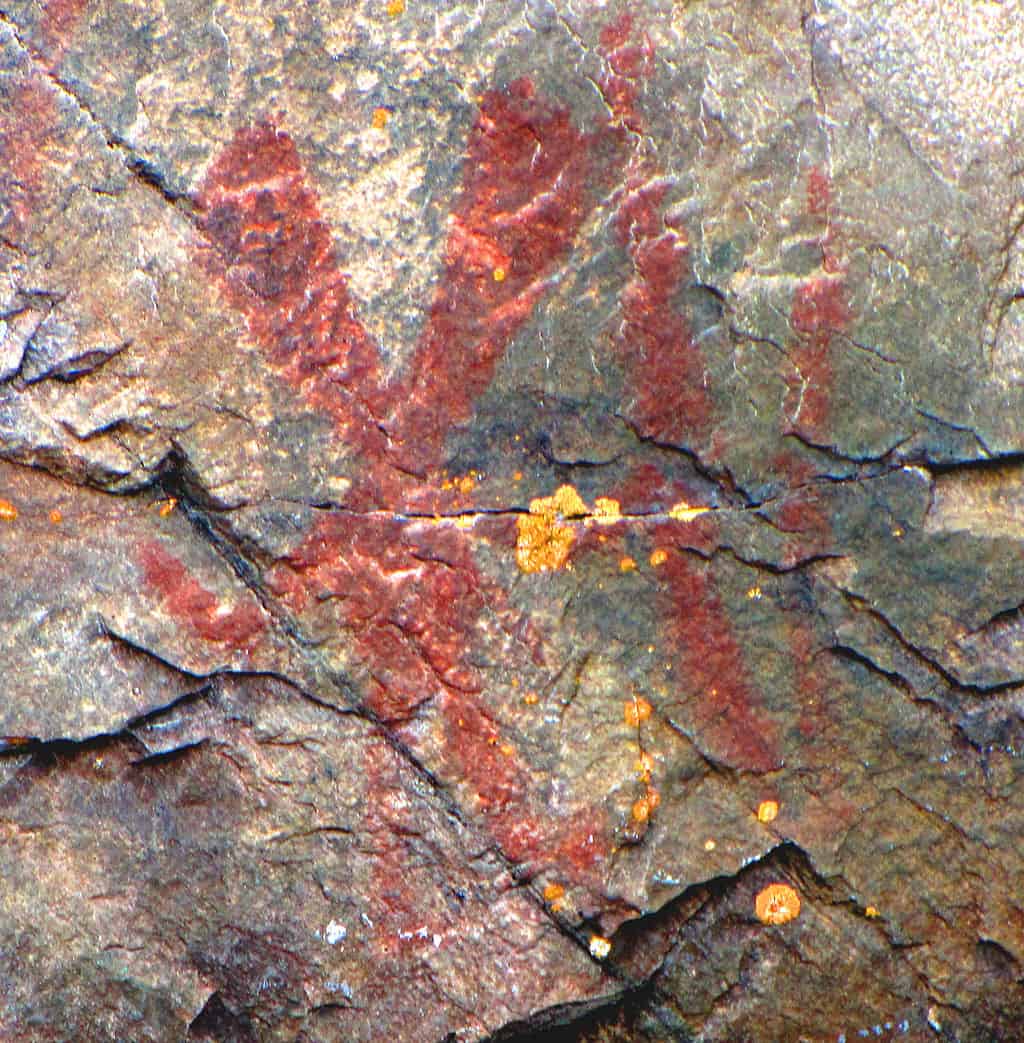Bon Echo vandalism ‘disgusting attack on Indigenous culture’ say Mississaugas of Scugog
Published October 2, 2023 at 10:19 am

The Mississasugas of Scugog have joined a growing chorus of condemnation of the vandalism of one of the Anishinabek Nation’s most sacred sites, Bon Echo Park’s Mazinaw Rock.
The 100-metre-high and 1.5-kilometre-long rock sits in Lake Mazinaw in the park north of Kaladar, some 200 kilometres northeast of Durham Region. For time immemorial, it has served as a meeting and trading place for Indigenous peoples.
These frequent visits resulted in the largest collection of First Nations pictograms in Southern Ontario. There are more than 260 pictograms painted on the rock. Scholars have studied the symbols since the 1890s. They believe shamans recorded their visions and told stories through the images. The images are estimated to be between 300 and 1,000 years old.
According to Parks Ontario, the images depict people, canoes, turtles, thunderbirds, and spirits like Mishibizhiw (underwater panthers, water spirits at war with the thunderbirds) and Nanaboozhoo (a shapeshifting trickster spirit and cultural hero). Uniquely, many of the pictograms are more abstract with mysterious symbolism, “only known to the painters themselves,” per Parks Ontario.

A Nanabozho pictograph on Mazinaw Rock. via Wikipedia.
The site became a Provincial Park in 1959 and the Pictograms officially made a national historic site in 1982. It remains a very sacred site for the Anishinaabe peoples, a large group of closely cultually related nations, including the Mississaugas of Scugog.
On Sept. 2, park staff discovered etchings in the rock face close to the pictograms. The park called the discovery “shameful” and launched a staff investigation to determine who had scratched into the stone. The leading theory is the vandal used a rock to scrape their name into Mazinaw Rock.
The Anishinabek Nation was quick to condemn the desecration of one of their sacred sites. “It is appalling to see this purposeful desecration and vandalism to Mazinaw Rock. This site is a living testament to the history of the Anishinaabe and other nations who used these waterways as travelling routes for generations,” said Anishinabek Nation Grand Council Chief Reg Niganobe.
The pictographs, Niganobe said “feature spiritual and cultural elements holding immeasurable value to our peoples, it is a link to our past, present, and future. We all have the responsibility to ensure that Mazinaw Rock is protected for the benefit of the generations to come.”
The Anishinabek Nation is working with the Province and Parks Ontario to figure out how to restore the site with “the inclusion of proper cultural protocol and involvement from local community Elders and Knowledge Keepers.”
They plead from public information for what they consider a “heinous hate crime.”
“When this type of hateful activity is displayed towards the successor state and their institutions, it is taken seriously and resources are expended to ensure that the perpetrators face the appropriate consequences,” Niganobe said, “We deserve and expect that same recourse of action.”
The Anishinabek Nation was hardly alone in its outrage. The MSIFN joined the calls for an thorough criminal investigation on Sept. 29, the day before the third annual National Day for Truth and Reconciliation.
“The desecration and vandalism of one of thye most significant and historic Indigenous sites in the province evidences an ongoin disrespect for Indigenous history,” the Nation wrote, “Efforts to learn from and about each other are essential pieces of reconciliation, Mazinaw Rock…is a critical example of this as it preserves the history and culture of many First Nations with pictographs along waterways that have been used by Indigenous people since time immemorial.”
Cheif Kelly LaRocca personally weighed in to say, “The cultural, historic, and spiritual meaning of these sites for Anishinabek Nation communities and other Nations cannot be overstated. This vandalism is a truly disgusting attack on Indigenous culture and history.”
“Mazinaw Rock remains a place of sacred and spiritual importance for Anishinabek people. We trust that the desecration of sacred sites will be met with serious consequences,” the MSIFN concluded.
insauga's Editorial Standards and Policies advertising






